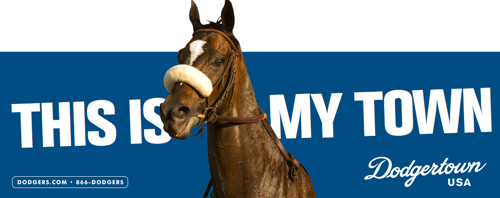Sports
Marketing horse racing through its rich data is on the agenda for the 2013 UA-RTIP Symposium on Racing and Gaming:
New Ways to Look at Numbers
Sports fans are traditionally a group of people who have an insatiable hunger for facts, figures and statistics. Racing is a sport that is data rich but that attribute hasn’t been marketed. Panelists look at new data that could be presented to the racing audience, new ways to present the information we currently provide as well as how all of it can be used to attract new customers and increase the frequency of current players.
It’s also the subject of Thorotrends’ call to “release the data,” which I hope the Symposium data panelists will read before they arrive in Arizona, along with everything Superterrific has gathered on the issue of freeing racing data from paywalls and PDFs in her latest on Exacta-mundo.
Making data more available can only help attract more horseplayers. I’ve believed so for as long as I’ve been a racing fan, and have only been confirmed in that belief watching other sports move ahead with data, whether in creating APIs, building it into mobile apps, supporting hackathons, or holding events such as Major League Baseball’s Bases Coded, in which teams competed “to create the next great interactive media product for baseball fans.”
Note, I’m not advocating that past performances and other handicapping products should be free, or that Equibase should release all the data it collects via an API without restrictions, although I do think it should release the majority of its data and without a significant lag. (Just as full charts can be downloaded within a hour of a race, so should race data.)
If you’re wondering what free(er) data might look like in racing, consider the models that already exist, ranging from MLB’s minimalist Gameday API to ESPN’s robust developer center. Imagine if Equibase created something similar to ESPN, which opens its data feeds to users for non-commercial applications with some usage restrictions (such as limiting the number of API calls within a set period) — as Thorotrends writes, the majority of racing fans would continue to use data as they always have, but there would be a small group who would hack and experiment. It would make racing feel less stagnant and less mysterious, leading to more fans and more wagering.
Market the data, certainly, just free the data first.
10/14/13 Update: Yes! From Dana Byerly, here’s a real-world example of how a horse racing API could be used.
Brian Zipse asks why Blind Luck gets a pass that Rachel Alexandra didn’t:
I understand that Rachel was held to a higher standard, as the reigning Horse of the Year, but to what end? Have we become so expecting of perfection of our stars, that they simply can not live up to them. Do we not allow ourselves to fully enjoy the special ones, because of these expectations?
Simply, yes.
There’s something about repeated brilliance that inspires a fear of loss (a fear not specific to racing). It’s sentimental. We can’t stand to lose the magic.
Look up, Angelenos:

“It’s official: Zenyatta is a crossover sports star.”
She really has ascended to another level, hasn’t she? It’s kind of fun. There’s a bit of an old time feel about Zenyatta’s super stardom, as well as trainer John Shirreffs’ reason for keeping the mare in California:
“We have to ship across the Rockies. It’s so much different out here than going up and down the East Coast.”
Well, maybe Zenyatta doesn’t like turbulence.
Instead of shipping east, she’ll go for a third consecutive win in the Vanity Handicap at Hollywood Park next month. “Are they kidding?” Not at all. She’s a hometown girl; if you’re in the neighborhood, celebrate with a bobblehead.
Copyright © 2000-2023 by Jessica Chapel. All rights reserved.